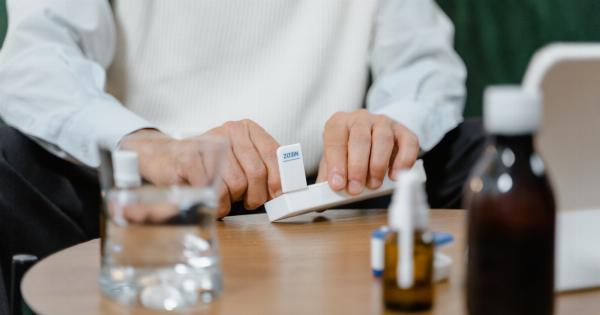Cystic acne is a severe form of acne that can cause painful inflammatory cysts deep within the skin. It often leaves behind deep scars and can significantly impact a person’s self-esteem.
While it may seem overwhelming, there are effective remedies available to help manage and treat cystic acne. This article will explore the causes, symptoms, and various treatment options for cystic acne, allowing you to regain control over your skin and boost your confidence.
The Causes of Cystic Acne
Cystic acne occurs when the pores in the skin become clogged with excess oil, dead skin cells, and bacteria. However, there are several factors that can exacerbate the development of cystic acne:.
Hormonal Factors
Hormonal changes are often a leading cause of cystic acne. Fluctuating hormone levels, especially during puberty, the menstrual cycle, or pregnancy, can trigger the overproduction of oil and the development of acne.
Genetics
There is evidence to suggest that cystic acne can have a genetic component. If your parents or immediate family members have a history of severe acne, you may be more prone to developing cystic acne as well.
Poor Skincare Routine
Not following a proper skincare routine can worsen cystic acne. Failure to cleanse the skin regularly, sleeping with makeup on, and using harsh or comedogenic (pore-clogging) skincare products can all contribute to the development of cystic acne.
Dietary Factors
Although the relationship between diet and acne is complex and varies from person to person, some studies suggest that certain foods rich in carbohydrates and dairy products may exacerbate cystic acne.
Symptoms of Cystic Acne
Identifying the symptoms of cystic acne is crucial for proper diagnosis and treatment. Here are some common signs and symptoms:.
Painful, Large Cysts
Cystic acne is characterized by the presence of large, painful red bumps beneath the skin’s surface. These swollen cysts can be filled with pus, leading to discomfort and tenderness.
Deep Inflammation
The inflammation caused by cystic acne often extends deep into the skin tissues, making it more challenging to treat. This inflammation can leave behind long-lasting scars if not addressed promptly.
Scarring
Unlike milder forms of acne, cystic acne has a higher likelihood of leaving behind scars. These scars can be deep, pitted, and difficult to fade without professional intervention.
Localized Redness
The affected areas of cystic acne might appear red, swollen, and inflamed. This redness can often extend beyond the immediate cystic lesions.
Effective Remedies for Cystic Acne
While cystic acne can be challenging to manage, several effective remedies can help alleviate symptoms and promote healing:.
Topical Treatments
Many over-the-counter and prescription-strength topical treatments contain ingredients such as benzoyl peroxide, salicylic acid, or retinoids. These ingredients target the underlying causes of acne, reduce inflammation, and unclog pores.
Oral Medications
In severe cases, oral medications like antibiotics, hormonal treatments, or isotretinoin may be prescribed. These medications address the root causes of cystic acne and can provide long-lasting relief.
Professional Procedures
In-office procedures performed by dermatologists, such as corticosteroid injections, acne surgeries, or chemical peels, can effectively treat cystic acne and minimize scarring.
Change in Lifestyle Habits
Adopting a healthier lifestyle can significantly improve the management of cystic acne. This includes maintaining a balanced diet, practicing stress management techniques, regular exercise, and following a consistent skincare routine.
Home Remedies
While not scientifically proven, some home remedies may help in managing cystic acne. These include applying tea tree oil, aloe vera gel, or green tea extracts to the affected areas, as they possess anti-inflammatory and antibacterial properties.
When to Seek Professional Help
If cystic acne is severely impacting your daily life or home remedies and over-the-counter treatments prove ineffective, it is crucial to consult a dermatologist.
They can assess your condition, recommend suitable treatment options, and provide guidance for managing cystic acne effectively.
Conclusion
Living with cystic acne can be challenging, but there are numerous options available for treating and managing this condition effectively.
By understanding the causes, recognizing the symptoms, and exploring suitable remedies, you can take control over your skin health and achieve clearer, healthier skin. Don’t despair – with the right approach and professional guidance, you can combat cystic acne and regain your self-confidence.





























